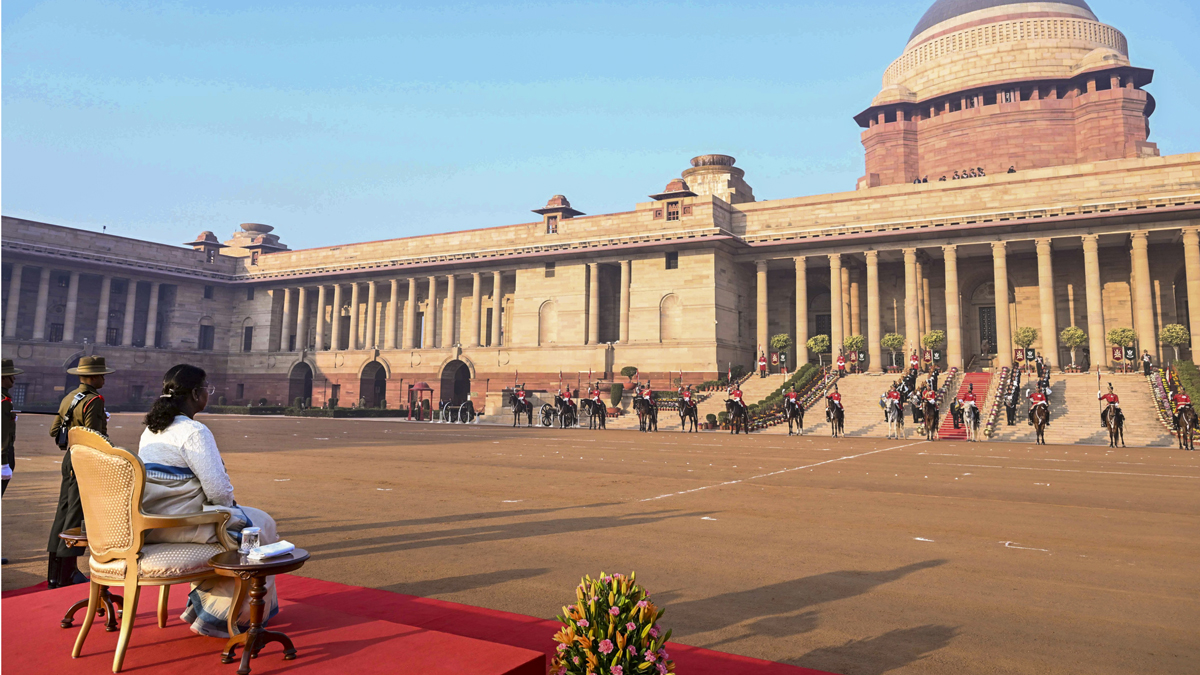Tamil Nadu governor vs state row: ‘President must decide on bills within 3 months', rules SC
 **EDS: THIRD PARTY IMAGE** In this image released by @rashtrapatibhvn via X on Sunday, Feb. 16, 2025, President Droupadi Murmu witnesses the inaugural show of the Change of Guard Ceremony in a new format at the Forecourt of Rashtrapati Bhavan, in New Delhi. The ceremony will take place every Saturday and will be open to a larger number of visitors from February 22, 2025. (@rashtrapatibhvn via PTI Photo) (PTI02_16_2025_000079B)
**EDS: THIRD PARTY IMAGE** In this image released by @rashtrapatibhvn via X on Sunday, Feb. 16, 2025, President Droupadi Murmu witnesses the inaugural show of the Change of Guard Ceremony in a new format at the Forecourt of Rashtrapati Bhavan, in New Delhi. The ceremony will take place every Saturday and will be open to a larger number of visitors from February 22, 2025. (@rashtrapatibhvn via PTI Photo) (PTI02_16_2025_000079B)
In its landmark judgment outlining powers and timeline for governors to decide on bills passed by state legislature, the Supreme Court has ruled president also do not enjoy absolute veto over bills passed by the state. The apex court said the president must decide on bills within three months and states can approach courts if a decision is not taken within the prescribed time limit.
In the detailed judgment published on the Supreme Court’s website on Friday, the apex court has also prescribed timelines for the president to act on bills passed by states and reserved for their assent. The apex court ruled a decision must be taken on bills within three months from the “date on which such reference is received” and in case of any delay, appropriate reasons must be conveyed to respective states.
A bench comprising Justice J.B. Pardiwala and Justice Mahadevan ruled if a decision is not taken within the time limit, states are entitled to approach the apex court to issue writ of mandamus against the president. “Where the president exhibits inaction in making a decision when a bill is presented to him for assent under Article 201 and such inaction exceeds the time-limit as has been prescribed by us in paragraph 391 of this judgment then it shall be open to the State Government to seek a writ of mandamus from this Court,” Live Law reported quoting the judgment.
The bench advised states must engage with the Centre on bills that require the president’s assent and Centre must consider “legislative proposals sent by the State governments with due regard and expediency”. The bench also observed president may seek the Court’s advice if a bill is reserved on the grounds of constitutionality.
The Supreme Court’s verdict comes as states are considering approaching the apex court over the president’s delay in granting assent to bills. Kerala has already filed a plea against President Droupadi Murmu for withholding assent on four bills passed by the state sans reasons.
India